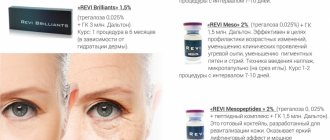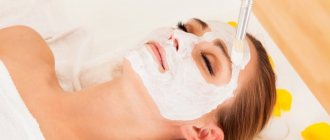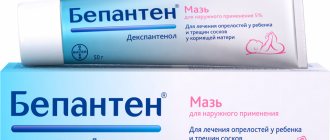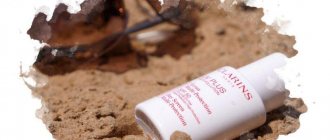Last update: 02/27/2021
Author of the article:
Menshchikova Galina Vladimirovna
Dermatovenerologist, trichologist, candidate of medical sciences, member of the Association “National Society of Trichologists”
Vitamin B6 or pyridoxine is a real beauty elixir for hair. When there is a shortage, they suffer first. This is noticeable in the main “signals”:
- Brittleness and dryness even when using nourishing masks;
- tip section;
- itching and flaking of the scalp, dandruff;
- no growth;
- active hair loss.
If you find yourself with at least a few symptoms, this is a reason to consult a doctor or cosmetologist. They will analyze the problem in more depth and prescribe the appropriate treatment. If measures are not taken in time and the supply of vitamin B6 is not replenished, dermatitis, cracks in the corners of the mouth, increased nervous excitability and irritability will be added to hair problems.
Pyridoxine: what kind of vitamin?
The main role of the vitamin is to take part in protein metabolism. In addition, pyridoxine is necessary for carbohydrate and fat metabolism in the human body. Helps maintain the balance of potassium and sodium, which is especially important for the central nervous system, and stabilizes muscle function. If there is a lack of vitamin in the body, inflammatory processes in the middle ear may begin.
It is worth keeping in mind that pyridoxine is negatively affected by sunlight, water and high temperatures. Therefore, products that contain the vitamin should not be boiled or heat-treated.
Properties and composition of vitamin B12
Vitamin B12, which is important for women’s health, is a whole group of interconnected compounds. They are distinguished by a high level of biological activity, contain cobalt atoms and belong to corrinoids. Such components of these substances as methylcobalamin and deoxyadenosylcobalamin have a beneficial effect on the body. The analgesic, antidepressant, antiallergic and tonic properties of the compound are widely known. It is noteworthy that this substance can be stored in liver tissue for several years.
Consequences of shortage
Due to a lack of vitamin B6 in the body, the following problems may occur:
- weakened immunity. Lack of pyridoxine leads to a decrease in antibodies that protect the body from harmful microorganisms;
- lack of glucose. In this case, fatigue, irritability appear, and sleep is disturbed. It happens quite often in pregnant women;
- imbalance of sodium and potassium. This usually results in swelling of the face, arms and legs. Sometimes the belly may become larger, which is not the cause of excess weight;
- problems with protein absorption. The lack of protein is associated not only with an insufficient supply of this useful substance, but also with a deficiency of pyridoxine. If you consume too many protein foods, their absorption may take up all the vitamin B6 that is present in the body.
How does vitamin B6 affect hair health?
- Pyridoxine helps hair retain moisture, it becomes softer and more hydrated, and the “straw” effect disappears.
- Hair growth accelerates and hair stops falling out. The hairs become thicker and acquire a smoother structure.
- Vitamin B6 soothes the scalp, itching and redness disappear. Along with them, dandruff gradually disappears.
- Vitamin B6 normalizes the activity of the sebaceous glands, hair becomes less dirty and stays clean and fresh longer.
- The roots also receive nutrition, due to which the hair becomes healthier along its entire length.
You can get a portion of the beneficial substance in two ways: take the vitamin internally or apply the product directly to your hair. Both of these methods can be combined, then the effect will be even more lasting.
Who should take it?
Vitamin B6 will be especially useful for the following categories of people:
- girls who use contraceptives or other means that contain estrogen;
- women in position. An excessive amount of estrogen appears in the body of a pregnant woman. Pyridoxine helps correct the situation;
- girls in the last 14 days before menstruation. There is also too much estrogen in the body;
- people who want to get rid of extra pounds;
- teenagers who have problem skin;
- patients with high blood sugar levels;
- persons with mental illness.
Causes and symptoms of deficiency in the body
A number of studies have identified risk factors for vitamin B12 deficiency in women. According to their results, a lack of substance can be triggered by age-related changes and a vegetarian diet (). A deficiency of vitamin B12 is often diagnosed with type 2 diabetes mellitus. In this case, deficiency becomes the reason for the use of metformin. It has been experimentally proven that patients receiving this drug daily in an amount of 1000 mg are 10 times more likely to have a deficiency of B vitamins than those who did not take this drug ().
A lack of a beneficial compound can also be caused by:
- bearing a child;
- breastfeeding the baby;
- taking contraceptive medications;
- parasitic infection of the body;
- presence of bad habits, such as smoking or addiction to alcohol;
- detection of gastritis and other gastrointestinal diseases.
Vitamin B 12 deficiency in women manifests itself in the form of irritability, drowsiness, loss of appetite and hair loss. Symptoms of cyanocobalamin deficiency also include yellowness of the skin, dry mouth, ulcerative lesions of the mucous membranes and the appearance of unpleasant body odor. People lacking the beneficial compound suffer from dizziness, shortness of breath, arrhythmia and diarrhea. In some cases, the deficiency affects the visual organs. Redness and dryness of the conjunctiva, increased photosensitivity, itching and burning are detected.
Indications for use
Vitamin B6 is often prescribed for the following conditions and problems:
- toxicosis during pregnancy;
- premenstrual period;
- diseases of the central nervous system, mental disorders;
- acute and chronic gastritis;
- anemia;
- skin diseases;
- in order to prevent negative effects as a result of taking various medications.
An acute lack of vitamin is observed in alcoholism and taking oral contraceptives.
The benefits of vitamin B12
Speaking about why women need vitamin B12, first of all it is worth considering its properties as a coenzyme. This trace element promotes cell division, development and growth. With its help, energy reserves are transported to them. The benefits of vitamin B12 for women also include the following functions:
- maintaining the integrity of the myelin sheaths and ensuring the healthy functioning of the nervous system;
- maintaining the processes of formation of DNA molecules;
- activation of protein production;
- ensuring an increase in skeletal muscle mass;
- relief of pain and allergic symptoms;
- cleansing the body of toxins;
- maintaining iron absorption processes;
- prevention of pathologies affecting the cardiovascular system and degenerative changes in the brain.
Normalizes appetite and restores lipid metabolism - this is what else vitamin B12 is useful for women. This substance prevents the development of chronic fatigue. With its help, the beauty and health of the skin is ensured, because taking vitamin B 12 for women prevents the appearance of dryness, redness and inflammation. Cyanocobalamin is also necessary to prevent depressive disorders and frequent mood swings.
How to use pyridoxine for hair
Vitamin-based hair masks are especially popular. They can be easily prepared at home. Pyridoxine has a positive effect on the condition of hair and stabilizes blood circulation.
For a vitamin mask you will need to purchase 4-5 ampoules of vitamin. You need to take 1 tbsp. l. burdock, castor and olive oil and stir well. Heat over low heat, add pyridoxine solution. Mix all ingredients well and you can apply the mask to your hair. Leave on hair for half an hour. Afterwards, rinse your hair well under warm water. After a couple of such procedures, you will notice how your hair will become softer, smoother and shinier.
Vitamins for healthy and beautiful skin in summer
July, long-awaited warmth, long sunny days and short nights. However, not everyone knows that the much-desired warm rays can carry some danger. Sunlight almost constantly affects a person, over time damaging the deep layers of the skin, and deep wrinkles form. UV radiation can be direct or indirect, and its intensity and associated risks vary depending on the time of year. That is why in the summer - during the period of maximum radiation intensity - our skin is especially in dire need of protection not only from the outside, but also from the inside. Chronic exposure to UV rays also causes a number of degenerative changes in the cells, connective tissue and blood vessels of the skin - freckles, birthmarks, and brown pigmentation may appear. UV irradiation provokes oxidation in tissues, accelerates skin aging, and the gradual loss of elasticity leads to the formation of wrinkles, dryness and flaking.
Therefore, in the summer it is important to be able to choose the right cosmetics for skin care, as well as vitamin preparations and supplements, in order to minimize seasonal risks.
Let's figure out what useful components of the products we should pay close attention to during the season. Vitamin C (ascorbic acid)
- an excellent antioxidant, fights the negative effects of free radicals and slows down the aging process of the skin, renewing it. Ascorbic acid also brightens, fights pigmentation and acne, stimulates the production of elastin fibers (increases firmness, elasticity and improves the appearance of the skin) and collagen.
Cosmetics with vitamin C perfectly moisturize the skin and enhance the effectiveness of sunscreen products. Minuses
: Contraindicated for people with diabetes mellitus who are prone to allergic reactions and blood clots.
Do not apply vitamin C products to damaged skin. Soluble forms that ensure its maximum availability will help maintain the proper level of vitamin C in the body ( effervescent vitamin C 900 mg and vitamin C 850 mg VerrumVit
, vitamin C powder Liksivum*).
And for external use, the Dermatology series with vitamin C from Librederm
.
Vitamin A
(retinol) thickens the skin and removes flaking, accelerates the process of skin renewal and participates in the formation of epithelial cells. With a lack of retinol, the skin loses elasticity, becomes fragile, pale and prone to peeling. Retinol is convenient for superficial application: small fat-soluble molecules easily penetrate into the deep layers of the skin.
Minuses:
not recommended for use on damaged and irritated skin.
Vitamin E (tocopherol)
slows down aging and restores the skin, accelerating its regeneration; protects the skin and the body as a whole from free radicals, strengthens blood vessels, keeps red blood cells from premature breakdown - so the skin remains healthy longer. Tocopherol also tightens the skin, restores its structure and helps fight pigmentation. Dark circles and swelling become smaller. Vitamin E is often recommended by cosmetologists and dermatologists; it is impossible to get the required amount from food alone.
If there is a lack of vitamin E in the body, the absorption of vitamin A worsens. That is why it is optimal to take them in pairs. The skin will signal a lack of vitamins A and E through dryness, rashes, paleness or redness, and premature signs of aging.
Liksivum capsules are recommended to combat such symptoms.
vitamins A and E* and vitamin E*, as well as
the AEvit series and vitamin E from Librederm
.
Vitamin B1 (thiamine)
helps increase skin elasticity, effectively fights fine wrinkles and irritations. Thiamine has antipruritic and anti-inflammatory effects, and is involved in the synthesis of connective tissue elements. All this helps maintain the natural condition of the skin.
Minuses:
allergic reactions are possible: itching, urticaria, dermatitis.
Vitamin B7 (H, biotin)
- “beauty vitamin”, one of the most popular aids in maintaining healthy skin, hair and nails. It significantly improves complexion and makes the skin elastic. Being a coenzyme involved in almost all metabolic processes in the body, it normalizes the functioning of the sebaceous glands, delivers sulfur to the skin tissue, and also protects against redness and peeling.
Minuses:
like other B vitamins, it can cause allergic reactions: itching, hives.
You can find thiamine and biotin on the pharmacy shelf in vitamin supplements such as VerrumVit Hair Vitamins*, B
*,
Krasavit
*,
Complex of hyaluronic acid, vitamins and collagen
*.
They also contain the multivitamin Complex for skin, hair and nails Vitamins Women
*, presented in the form of a sachet.
Omega-3 fatty acids
have a powerful anti-inflammatory effect, smooth out hormonal surges, and reduce the likelihood of skin peeling. Omega-3s are powerful antioxidants that neutralize active oxygen atoms, which are dangerous to the skin, formed under the influence of ultraviolet radiation. Omega-3s prevent collagen from being destroyed, help the skin maintain its elasticity and reduce the likelihood of early wrinkles.
The spectrum and effectiveness of the effects of PUFAs on the body directly depend on the dose, so it is recommended to maintain the level of Omega-3 consumption around 1000 mg/day. In the pharmacy assortment, worthy representatives of Omega-3 will be Olevigam products (65% and Premium 90%)
*.
Collagen is represented by an amino acid sequence assembled into a polypeptide chain. Its threads, fibrils, are twisted into a spiral, held together by crosslinks. Thanks to this structure, it is low-stretch and has high strength. With age and under the influence of negative factors (for example, UV radiation), a decrease in the level of collagen and elastin leads to the formation of folds on the skin. Collagen fibers lose their elasticity and become coarser and thicker. The tissues lose their elasticity, sag and wrinkles appear.
For example, the Complex of hyaluronic acid, vitamins and collagen will help to compensate for the lack of collagen. And for impact “on all fronts” we also recommend the Librederm
.
Don't forget that vitamin C
helps collagen to be better absorbed, so in this case a comprehensive offer would be the best option.
Hyaluronic acid
has the ability to attract and retain water, thereby providing elasticity to the skin frame and strengthening it. Getting on the surface of the epidermis, it forms a film that prevents moisture evaporation and at the same time protects against aggressive environmental factors. When the skin is well hydrated, important components of its matrix such as collagen and elastin are actively synthesized.
Their production begins to slow down after age 25, partly due to a lack of hyaluronic acid. When taking hyaluronic acid internally and using external products, the skin becomes fresh, less vulnerable, wrinkles are smoothed out, and dullness disappears.
An additional source of hyaluronic acid will be the Complex of hyaluronic acid, vitamins and collagen
.
An excellent way to maintain optimal skin condition are thermal waters ( hyaluronic spray and thermal water from Librederm
), which perfectly moisturize and cool the delicate skin of the face, neck and décolleté.
Properly selected care will help maintain the health and beauty of your skin in any weather and at any time of the year.
special instructions
People who have gastric and duodenal ulcers, as well as cardiac ischemia, should take it with caution. If you have liver problems, you can take the drug in small doses.
Pyridoxine can be stored for 36 months from the date of release. You need to keep the medicine in a dry and dark place away from children at a temperature of +8...+15 degrees.
It can be purchased at a pharmacy without a specialist prescription, but before taking it, it is better to consult with your doctor.
If you consume alcoholic beverages in excessive quantities, the absorption of the vitamin will decrease, and, consequently, the body will experience a lack of pyridoxine.
Recommendations for use, dosage, daily intake
The norm of vitamin B12 for women is 2.4 mcg per day. The need for the substance increases in girls who are pregnant or breastfeeding. For pregnant women, the daily dose of B12 is 2.6 mcg. During lactation it corresponds to 2.8 mcg. According to some data, during puberty, women need from 2.3 to 2.9 mcg of the substance per day. After 18 years, this requirement increases to 3 - 3.4 mcg. Women who are at risk are recommended to take up to 4 mcg of the substance. Your doctor will help you determine your individual dose of the drug. Nutritional supplements in any form should be taken 2 times a day.











